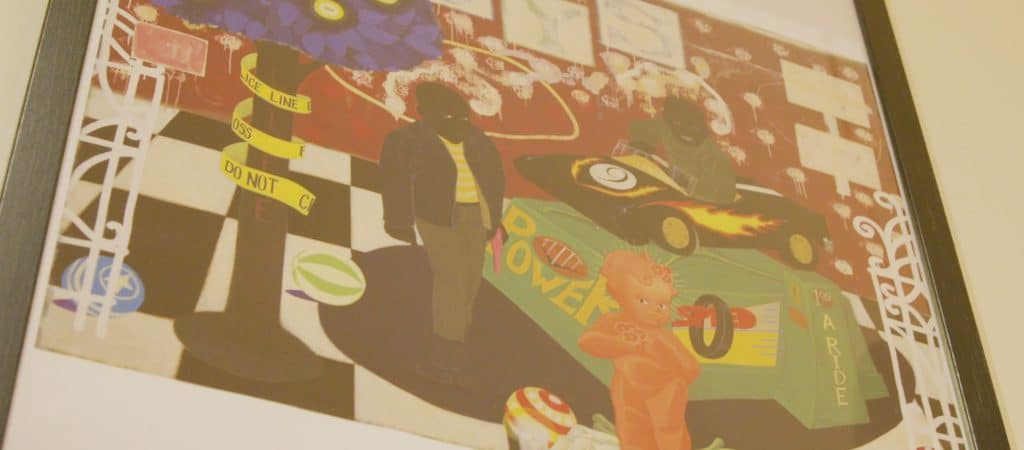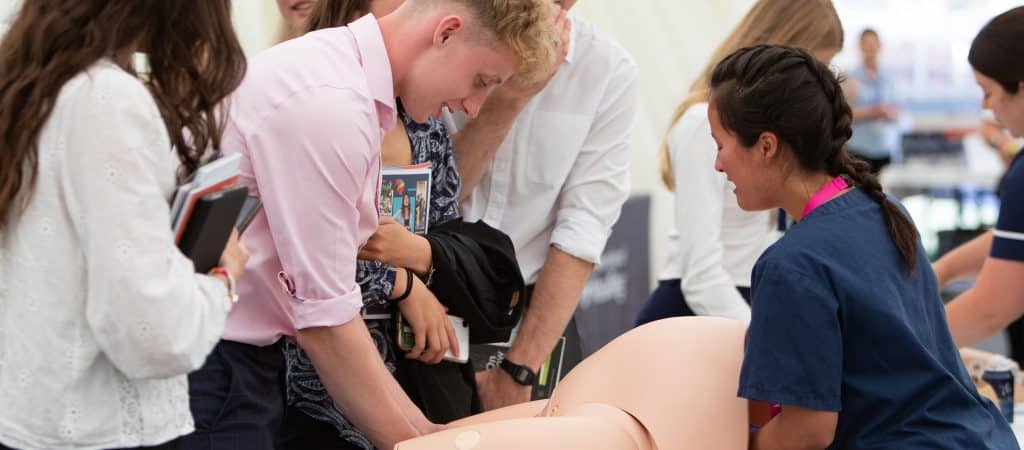Continuing the legacy of the SET Initiatives (Sustainability, Equality, Transparency), put in place by their predecessors, outgoing JCR members introduced an innovative way of working towards their Transparency goals by enhancing pupil voice. Knowing that Bradfieldians hold many unique interests, Heads of School Yolanda (I) and George (H), alongside the JCR, created a platform from which all pupils could share their passions and knowledge. A new acronym for the Bradfield lexicon was created: TiB, Talks Inspiring Bradfieldians, and the first event featured six speakers from four different year groups.
Looking at a medical career with a specialism in surgery, Upper Sixth pupil Issy (I) shared her research into a new era of heart transplants. She educated the audience on the history of xenotransplantation, transplanting tissue from one species to another, from James Hardy’s 1963 (eventually unsuccessful) transplant of a chimpanzee heart to this year’s breakthrough of a successful pig-human heart transplant. Issy closed the talk by sharing her hopes for a future in which we might have the means to decrease the number of deaths among those waiting for organ transplants.
Delving into research undertaken for her Extended Project Qualification on how girls and women can feel more comfortable using weights in the gym, Lower Sixth pupil Claudia (M) spoke of the skills gained from her experience within the sport of competitive weightlifting. Claudia took the audience through her journey having been inspired to take up the sport after watching women compete at the Olympics, before concluding: “If you put your mind to it, you can achieve anything. I gained confidence from achieving a Personal Best and, mentally, the whole experience has helped me in so many areas such as school exams and talking to people.”
“How sure are you of what you think you know?” This was the question posed by Thomas (H) as he explored Oxford Professor Nick Bostrom’s theory that we are living in a simulation. Setting out that a simulation recreating neuro-synaptic thoughts can be created when a human-level civilisation reaches technological maturity, Thomas went on to question whether we have free will and whether our senses could be an illusion. Reflecting on why we believe what we believe, he left the audience questioning: “If we can’t trust what we observe, how can we prove the existence of the world we live in?”
Fifth Former James’ (A) inspirational talk defined Type 1 diabetes as he discussed how it might be treatable in the future, drawing on personal experiences and those of his family. Having laid out how diabetes impacts not just the lives of those who have been diagnosed, but also those around them, James shared medical research on STEM cell treatments and shared the hopes of the medical community of how these varying treatments might become mainstream practice in the future.
The youngest speaker of the event was Shell pupil Jemma (I) who also drew from personal experience for her talk on signing in the deaf community. Around 11 million people in the UK are either deaf or hard of hearing and for the first eight years of her life, Jemma was one of them, wearing hearing aids due to a severe case of adhesive otitis, or Glue Ear as it is commonly known. With the use of audio recordings, her interactive talk demonstrated what sounds are like to those who have varying degrees of hearing ability as she raised awareness among those in attendance of the difficulties that the people in the deaf community face.
Knowing she wanted to become a doctor from a young age, aspiring medic Elsa (K) looked back on her experience as a 15-year-old volunteering in hospitals in Tanzania. She urged her peers to find a volunteering opportunity within their various fields of interest, concluding that it could change the way they think about themselves: “It was a life-changing experience. I learnt so much about communicating with people who I couldn’t speak with verbally as well as the importance of the availability and affordability of healthcare.”





